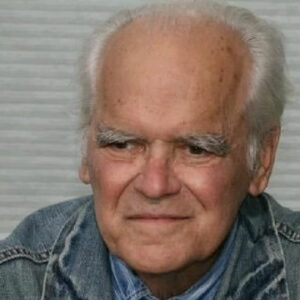David Wagoner is a prolific writer who ranks high on the list of contemporary American literary scholars. Though Wagoner has always eluded media scrutiny and attention in comparison to his contemporaries, his work has been met with widespread acclaim and respect. Frequently compared to his early mentor, Theodore Roethke, Wagoner is best known for his perceptive writing and evocative poems, the most well-known of which are ‘Staying Alive’ and ‘Lost.’ Though he is best known as a poet, he is also an accomplished novelist, having written ten popular novels. The young boy, born in Ohio and raised in Indiana, developed an early interest in literature and began writing at the age of ten. He was bright and inventive, as well as an amateur magician and theatre enthusiast. He served in the United States Navy prior to earning his bachelor’s degree from Pennsylvania State University. He then earned a master’s degree in English from Indiana University before pursuing an academic career. His abiding passion for poetry was exemplified by the publication of ‘Dry Sun, Dry Wind,’ the first of his numerous collections of poetry. He then published two novels in quick succession while establishing himself as a teacher. By the mid-1960s, he had established himself as a highly regarded teacher and an astute poet. Wagoner has won a slew of prestigious literary honors, including two Pushcart Prizes and the Academy of Arts and Letters Award.
Childhood & Adolescence
David Russell Wagoner was born on June 5, 1926, in Massillon, Ohio. In 1933, his father was hired by a steel mill in Whiting, Indiana, and the family relocated.
Whiting was a highly polluted industrial town, and the boy’s impressionable mind was shaped by his surroundings. He began writing when he was ten years old and was also fascinated by magic and theater.
After completing his education, he enrolled in Pennsylvania State University’s Navy ROTC program, where he studied short story and playwriting. He also took part in a poetry workshop led by poet Theodore Roethke, who later became a mentor and close friend. In 1947, he earned a bachelor’s degree.
He then enrolled at Indiana University, where he earned a master’s degree in English in 1949.
Career of David
He began his academic career shortly after earning his master’s degree, accepting a teaching position at DePauw University in 1949. In 1950, he transferred to Pennsylvania State University.
Simultaneously, he began pursuing a writing career and published his first collection of poetry, ‘Dry Sun, Dry Wind,’ in 1953. He immediately followed it up with two novels: ‘The Man in the Middle’ (1954) and ‘Money, Money, Money’ (1955). (1955).
His early literary works reflected his childhood experiences growing up in a polluted and depressed environment devoid of natural resources or greenery. In 1954, he accepted a position as an associate professor of English at the University of Washington in Seattle. Roethke, his mentor, was the one who suggested this course of action.
He published ‘A Place to Stand’ (1958) and ‘Poems’ (1959) before releasing the poetry collection ‘The Nesting Ground’ in 1963, which addressed his new, pristine surroundings in the Pacific Northwest, which stood in stark contrast to his youth’s polluted, barren Midwest landscape.
In 1965, he published ‘The Escape Artist,’ which became his best-selling novel. The story followed a young boy as he attempts to make it big as an amateur magician. Wagoner’s childhood fascination with magic inspired the work, which was later adapted into a feature film by executive producer Francis Ford Coppola.
By the mid-1960s, Wagoner had achieved international acclaim as a poet, and he served as editor of Poetry Northwest from 1966 to 2002. He was also appointed full professor at the University of Washington in 1966. In the same year, he published ‘Staying Alive,’ his most critically acclaimed collection of poems to date.
In 1963, Roethke, Wagoner’s former mentor and close friend, died. Wagoner published ‘Straw for the Fire: From the Notebooks of Theodore Roethke, 1943–63’ nearly a decade later in 1972, a collection of Roethke’s writings. Wagoner also published what would become his most famous poem, ‘Lost,’ in 1972, as part of the collection ‘Riverbed.’
Wagoner was elected chancellor of the Academy of American Poets in 1978 and served in that capacity until 1999. In 2002, he was appointed professor emeritus at the University of Washington.
David Wagoner published ten novels and more than twenty collections of poetry over the course of a six-decade writing career. He also edited the 2009 ‘Best American Poetry anthology.’ ‘After the Point of No Return’ is one of his most recent works (2012).
Significant Works of David
David Wagoner’s best-known novel is ‘The Escape Artist,’ which follows an amateur magician as he battles unscrupulous characters on his quest for greatness. In 1981, the novel was adapted into a film.
‘Lost’ is widely regarded as his magnum opus. Since its initial publication in 1972, it has been featured on greeting cards, used in life coaching and yoga practices, and has been reprinted numerous times in poetry anthologies. Additionally, the poem was featured on Oprah Winfrey’s website.
Awards and Accomplishments
In 1977, he won his first Pushcart Prize; in 1983, he won his second. In 1991, he was awarded the Ruth Lilly Poetry Prize.
Additionally, he has received awards from the American Academy of Arts and Letters, the Sherwood Anderson Foundation, and the Arthur Rense Prize.
Personal History and Legacies
David Wagoner has been married three times. Robin Seyfried, a poet, is his third wife.
Estimated Net Worth
David is one of the wealthiest poets and is ranked as one of the most popular poets. David Wagoner’s net worth is estimated to be around $169.1 million, based on our analysis of Wikipedia, Forbes, and Business Insider.


